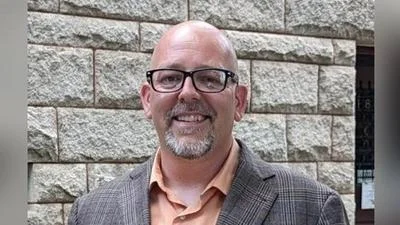The Illinois Appellate Court’s Workers’ Compensation Division took a surprisingly conservative tack in determining causation in two cases related to firefighter injuries recently, a Chicago-based lawyer asserted.
Eugene Keefe, founding partner of Keefe, Campbell, Biery & Associates (KCB&A), said both cases hinged on causation in cases involving Illinois firefighters, who enjoy a presumption of compensability. That means that when a firefighter is injured, the employer has to prove it was unrelated to their duties. In the recent cases, firefighters with pre-existing health conditions had suffered heart attacks, which the court ruled were not related to their work.
Keefe takes issue with the idea that causation can be dictated in legislation, and was particularly critical when the presumption of causation was initially added to Illinois’ workers’ compensation laws, believing it would lead to decisions in favor of employees made over common sense considerations.
In the first recent case, a firefighter with coronary artery disease suffered a heart attack while clearing snow from his parking space at the station. Based on expert testimony on his medical history, which pointed to the disease being triggered by obesity, heavy smoking and family history, the arbitrator decided that the presumption of causation was overcome, and the decision was upheld throughout the appeals process.
In the second case, a Peoria fire battalion chief, whose duties were mainly administrative, suffered a heart attack while at home. His attorneys argued that his 22-year history as a frontline firefighter and continued coordinating role at live fires were enough to maintain the presumption of causation, and the case arbitrator agreed. Upon appeal, however, expert testimony – again pointing to the claimant’s high cholesterol, hypertension and obesity – was enough to support the commission’s decision that the heart attack was not triggered by work-related conditions.
“I assure you the attorneys who brought this claim thought the causation standard was a complete judicial ‘lock’ and they couldn’t lose -- think again!” Keefe wrote. “A finding of causation still needs facts confirming a relation to work actions.”
While the firefighter presumption stands and therefore still applies a legislative guidance on causation, the recent cases point to a sensible approach in accepting rebuttals of the presumption, Keefe said.
“…[Y]ou can’t legislate causation — the cause and effect between work and a medical condition have to be clear to the hearing officers who remain the gatekeepers,” Keefe wrote. “In these claims, I feel the WCC got it right and, other than Justice Holdridge as an outlier, the appellate court agreed. I am sure the attorneys who represent firefighters are going to limit themselves to claims where causation is clearer and supported by the facts.”
The presumption of causation was created in 2007 with the addition of Section 6(f) to the Workers’ Compensation Act. It applies to people who work as firefighters, emergency medical technicians or paramedics for at least five years and covers disabilities caused by cardiac, pulmonary and cancer-related illnesses, among other causes.
“According to me, the ‘firefighter presumption’ for cardiac, pulmonary and cancer is based on an urban legend -- the folks from the firefighters unions argue their members are constantly swathed in smoke,” Keefe wrote, pointing to statistics suggesting that most calls firefighters respond to are medical in nature. “You don’t get a heart attack from carrying out a patient on a gurney.”
Illinois firefighter unions fought to have the presumption enshrined in legislation, while the state’s Republican politicians are seeking to erode it. Gov. Bruce Rauner and Senate Minority Leader Christine Radongo (R-Lemont) have supported legislative measures to create a larger burden of proof for causation. Keefe takes issue with both approaches on the grounds that causation cannot be legislated. Keefe’s position is that legislation and causation should not mix.
“…You can’t change causation because it is a common sense issue that isn’t truly amenable to legislative fiat,” he wrote. “As we have advised, Governor Bruce Rauner controls the jobs of our administrators and if he tells them to be conservative on causation or look for other work, they probably will be conservative on causation. Doesn’t seem that complex to me.”
.jpg)





 Alerts Sign-up
Alerts Sign-up